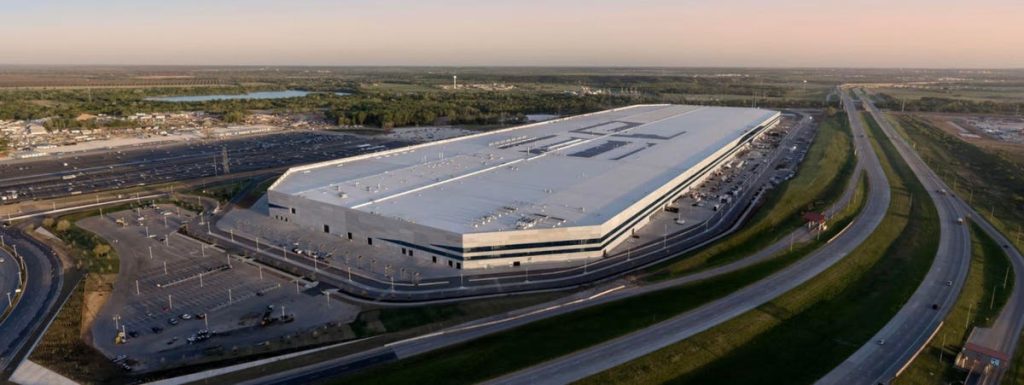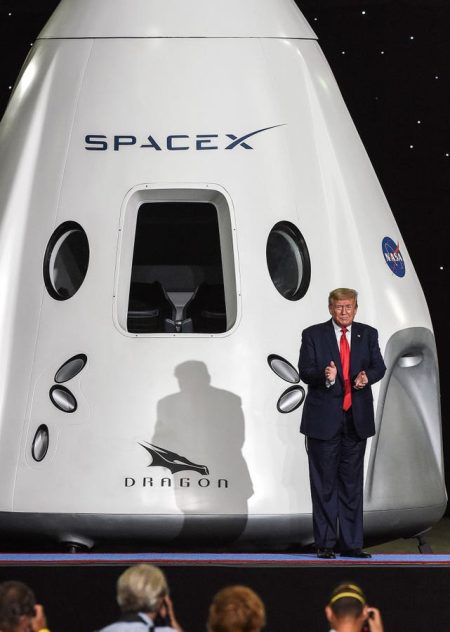Former President Trump has been on a tear about electric vehicles and how they’re bad for the American car industry.
The problem with his argument is that it avoids any mention of Tesla — the proverbial elephant in the room and the biggest positive for the American car industry today.
Tesla beat the impossible odds of building a car company (in the throes of the Great Recession of 2008) that is now challenging the Big Three — not to mention the Chinese.
Tesla could be on its way to becoming the largest carmaker in the world by output by 2030. And, as a gentle reminder, Tesla is an American car company. Probably the most American of American carmakers today since it makes vehicles with the highest American parts content of any U.S. auto manufacturer.
Tesla recently (2021) finished building a massive gigafactory in Austin, Texas — not Mexico — that employs novel manufacturing techniques using giant die casting machines. And, by the way, a factory that employs thousands of Americans.
That plant is slated to build a very American car too. The Cybertruck. It has all the hallmarks of traditional American muscle design: big, bold, and brash — and fast.
EV fact check
Contrary to claims made by Mr. Trump in recent campaign speeches, EVs don’t have to be recharged every hour. The longest-range Cybertruck, for example, will be able to travel more than 400 miles before a recharge.
(I can testify that the one hour figure that Mr. Trump keeps citing in speeches is not accurate even when applied to the low-cost Chevy Bolt — also built in America with American-made batteries. My Bolt can travel up to 230 miles on one charge, which lasts me a week in driving around Los Angeles, where I live.)
Here’s what the former president said on Truth Social: “The all Electric Car is a disaster for both the United Auto Workers and the American Consumer. They will all be built in China and, they are too expensive, don’t go far enough, take too long to charge, and pose various dangers under certain atmospheric conditions.”
Like it or not, EVs are the future of the American car industry
Remember in 2008 (and in the 1980s) when Toyota and other Japanese car makers were the biggest threat and were bankrupting the American car industry?
Well, thanks to Tesla and a lucky — and surprising — lack of perspicacity on Toyota’s part, the Japanese car industry is falling behind American car manufacturers.
That’s because Toyota executives did not embrace electric vehicles and poo-pooed Tesla for years as an unserious, wannabe car company. (Despite leading the green car movement with the Prius hybrid in the early 2000s.)
And Toyota also missed a paradigm shift: cars have become gadgets on wheels, packed with AI, cameras and sensors and replete with periodic OTA software upgrades. Tesla is so far ahead here that Toyota may remain chronically behind.
EVs have also provided a great window of opportunity for both General Motors and Ford. Today both companies are delivering high-quality EVs — such as the Cadillac Lyriq, Chevrolet Silverado EV, Mustang Mach-E and F-150 Lightning — that the Japanese will have much more trouble competing with.
And electrifying the car has also given rise to very promising American EV startups such as Rivian, which, as we speak, is working hard to increase the American-made content of its EVs. It too is building factories in America. The first one in Normal, Illinois (previously operated by Mitsubishi Motors) with another slated for Georgia.
That said, the transition to EVs won’t be smooth for legacy American gas car manufacturers. But it’s undeniably the future. If America wants to avoid ceding the car industry to the Chinese — the new global competition on the block — it is imperative to have an EV-centric car industry.
GM and Ford have to figure out how to make electric cars at a profit. But Mr. Trump is wrong about EVs being bad for America. He should reconsider that stance.
Read the full article here










